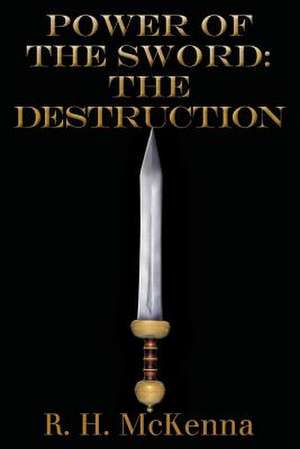Power of the Sword
Autor MR R. H. McKennaen Limba Engleză Paperback
Preț: 106.89 lei
Nou
Puncte Express: 160
Preț estimativ în valută:
20.46€ • 21.28$ • 16.89£
20.46€ • 21.28$ • 16.89£
Carte disponibilă
Livrare economică 24 martie-07 aprilie
Preluare comenzi: 021 569.72.76
Specificații
ISBN-13: 9781479255900
ISBN-10: 1479255904
Pagini: 294
Dimensiuni: 152 x 229 x 16 mm
Greutate: 0.4 kg
Editura: CREATESPACE
ISBN-10: 1479255904
Pagini: 294
Dimensiuni: 152 x 229 x 16 mm
Greutate: 0.4 kg
Editura: CREATESPACE
